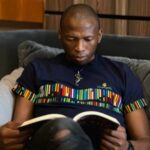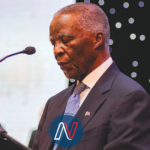This month, Lesotho marked 59 years of independence from British Colonial Rule. Letsatsi La Boipuso is a day meant to stir national pride. Instead, it casts a stark shadow over our nation’s trajectory. Behind the carefully crafted speeches about development and the endless promises of successive governments lies an uncomfortable truth: the daily reality for most Basotho remains fundamentally unchanged. Our colonial masters packed their bags, but left their playbook behind, now expertly wielded by our own.
Steve Biko’s powerful declaration, “Black man, you are on your own,” galvanized the Black Consciousness Movement during South Africa’s apartheid era. Today, in 2025, this message resonates anew in Lesotho: Mosotho, you are on your own. This is not a cry of despair but a call to action. The inferno consuming our state institutions demands a response from within. Only Basotho possess the power to extinguish these flames.
We can no longer delegate our future to others or wait for leadership that consistently prioritizes personal or partisan interests over national welfare. If we seek accountability, stability, and genuine progress, we must not merely request it. We must demand it relentlessly.
Lesotho stands paralyzed at a critical crossroads, and emigration cannot be our default response. The rising tide of xenophobia in South Africa, exemplified by Operation Dudula, serves as a sobering reminder that fleeing is not a solution. True security can only come from stabilizing our own nation.
A dangerous paralysis grips Lesotho today. Our government institutions are crumbling under the weight of systemic corruption. Each passing week brings fresh revelations: financial mismanagement spreads like a cancer through ministries, constitutional breaches become commonplace, and corruption permeates every level of governance. Our governmental institutions, parliamentary bodies, and increasingly, our citizenry are mired in a collective indifference that feeds upon itself. When leadership fails to fulfill its promises, public engagement withers. This disengagement, in turn, removes crucial pressure from leaders to perform their duties. Like an uncontrolled blaze, this cycle of apathy spreads unchecked through our democracy.
The state of our democracy tells a troubling story. While registered political parties surged by 85% between 2017 and 2022, voter participation plummeted to unprecedented levels. The 2022 elections saw a record 1.3 million registered voters, yet less than 40% exercised their democratic right. Rather than inspiring civic engagement, this proliferation of parties convinced many Basotho that politics has devolved into a self-serving enterprise rather than a platform for public service.
Even the Independent Electoral Commission acknowledges its shortcomings in civic education, conducting rushed awareness campaigns before elections instead of maintaining sustained educational efforts. A compromised voters’ register, still listing deceased citizens, only deepens public scepticism. In this climate, political disengagement becomes the path of least resistance. Yet this withdrawal carries a devastating price: it allows our nation to burn while we stand idle.
Here lies an essential truth: tax payment provides citizens with the strongest foundation for demanding accountability. When Basotho fulfil their fiscal responsibilities to the state, leadership has no justification for failing to deliver.
It is crucial to understand that being a taxpayer transcends mere obligation. It represents a source of voice and influence. Citizens who contribute to the national treasury are not beggars. They are stakeholders who have earned their right to participate in national dialogue.
When corruption or mismanagement depletes these public contributions, it constitutes more than administrative failure. It represents direct theft from every citizen who has invested in the system.
As we move through 2025, Lesotho’s economic decline continues unabated. Manufacturing facilities close their doors, agriculture struggles, and tourism remains stagnant. Even before Donald Trump’s tariffs impacted our exports, our economy had already contracted by 43%.
In an economic wasteland, criminal activity becomes the default employer. The rise of Makhomosha represents more than just individuals entering illegal mines. It reflects a society breeding desperation. Litotomeng has transformed from location into a metaphor for the limited options facing our rural youth. For many, participating in dangerous, illegal economies is not a reckless choice but the only survival strategy in an opportunity-barren landscape. We are cultivating successive generations of Makhomosha through our failure to provide economic alternatives. They stand as stark evidence of a nation where opportunity has been supplanted by economic despair.
Local and international experts have consistently cautioned against Lesotho’s pattern of reckless spending while relying on foreign aid or SACU windfalls to bridge financial gaps. The World Bank’s recent Lesotho Economic Update delivered an unambiguous message: fiscal policy could drive inclusive growth if implemented strategically.
The report advocated establishing robust fiscal rules and a Stabilization Fund to prevent the mismanagement of temporary SACU surpluses. It emphasized controlling the escalating public wage bill, redirecting expenditure toward critical infrastructure and education, and enhancing procurement efficiency and service delivery.
Furthermore, it highlighted crucial opportunities Lesotho continues to overlook: integration with the African Continental Free Trade Area, enhancement of the investment climate, and restructuring state involvement to foster private sector growth.
These recommendations are not revolutionary or impossible to implement. Yet in Lesotho, they remain unrealized potential, gathering dust in archived reports. Our nation burns while solutions lie within reach, unused.
Today’s Basotho youth represent our most educated generation. With higher literacy rates, increased access to tertiary education, and unprecedented global connectivity through digital platforms, they possess transformative potential. This educational investment was not futile. An informed, connected youth population represents a powerful catalyst for change. If directed toward civic engagement rather than disillusionment, it could fundamentally alter our national trajectory.
These factors are not peripheral details. They represent possibilities amid our national crisis. Yet they will remain mere potential unless citizens transform them into concrete demands for accountability and reform.
While criticizing state institutions and political parties comes easily, democratic strength ultimately flows from citizen participation. Every eligible Mosotho who abstains from voting effectively endorses the current system. Silence does not constitute resistance. It represents tacit acceptance of our national decline.
The vitality of a democracy is measured not through political rhetoric but through active citizen engagement. The 1993 elections, following military rule, saw a remarkable 72% turnout – a testament to citizens’ power when they recognize their democratic responsibility. Similarly, 2012’s coalition politics momentarily reinvigorated public participation. These instances demonstrate that when circumstances demand action, Basotho respond decisively.
Today’s reality presents a stark contrast. With unemployment soaring, hunger widespread, and crime undermining the social fabric, many citizens have lost faith in the electoral process. Yet paradoxically, this represents our most critical juncture. The moment to salvage democracy before it deteriorates beyond recovery.
We stand at a decisive crossroads. One path leads deeper into civic apathy, surrendering governance while we bemoan deteriorating conditions. The alternative demands reclaiming democracy as a dynamic process requiring sustained engagement, critical oversight, and meaningful participation.
Voting transcends symbolism or ritual. It serves as our primary instrument against governmental stagnation and mismanagement. Without robust voter participation, administrations operate with diminishing legitimacy, institutions decay unchecked, and promises remain perpetually unrealized.
So what now? The critical question facing citizens between electoral cycles demands more than passive observation. The sobering reality confronting every Mosotho is self-reliance. Yet this should not inspire despair but galvanize agency. We cannot await external intervention. Our salvation lies in collective action. While challenges mount, we retain the power to effect change.
Firstly, demand transparency and accountability. Your parliamentary representative is not a distant figure in Maseru but your direct advocate. Question their decisions. Demand explanations. Government ministries and local councils must face direct citizen scrutiny through formal petitions, correspondence, and public demands that create undeniable records.
Secondly, mobilize around concrete issues beyond party politics. Religious institutions, youth organizations, labour unions, and community associations provide natural platforms for collective action. When unified voices address infrastructure, employment, education, or basic services, leadership must respond. When civil society and independent media expose malfeasance, active citizen support strengthens their impact.
Thirdly, take ownership of civic education. Do not wait for last-minute IEC workshops. Engage family members, colleagues, and community networks. Send a WhatsApp chain message like our parents used to. Have discussions during tulo ea mokhatlo oa likhooho. Emphasize our collective role in democratic governance – that leadership accountability begins with informed voter participation. Each conversation strengthens democratic foundations.
Finally, prepare deliberately for electoral participation. Low turnout perpetuates systemic failures. Research candidates thoroughly, evaluate past performance, and scrutinize parliamentary voting records. Reject superficial campaign promises and temporary inducements. Most crucially, participate. Converting frustration into electoral engagement represents the first step toward meaningful change.
Accountability extends beyond leadership obligations to citizens. It hinges on our persistent, unwavering demands for transparency and action from those in power. We cannot afford to be silent passengers while the bus goes over the cliff. Your elected officials should be making the noise on your behalf. But if they will not, then you must.
Summary
- This is not a cry of despair but a call to action.
- The rising tide of xenophobia in South Africa, exemplified by Operation Dudula, serves as a sobering reminder that fleeing is not a solution.
- For many, participating in dangerous, illegal economies is not a reckless choice but the only survival strategy in an opportunity-barren landscape.

Your Trusted Source for News and Insights in Lesotho!
At Newsday Media, we are passionate about delivering accurate, timely, and engaging news and multimedia content to our diverse audience. Founded with the vision of revolutionizing the media landscape in Lesotho, we have grown into a leading hybrid media company that blends traditional journalism with innovative digital platforms.










